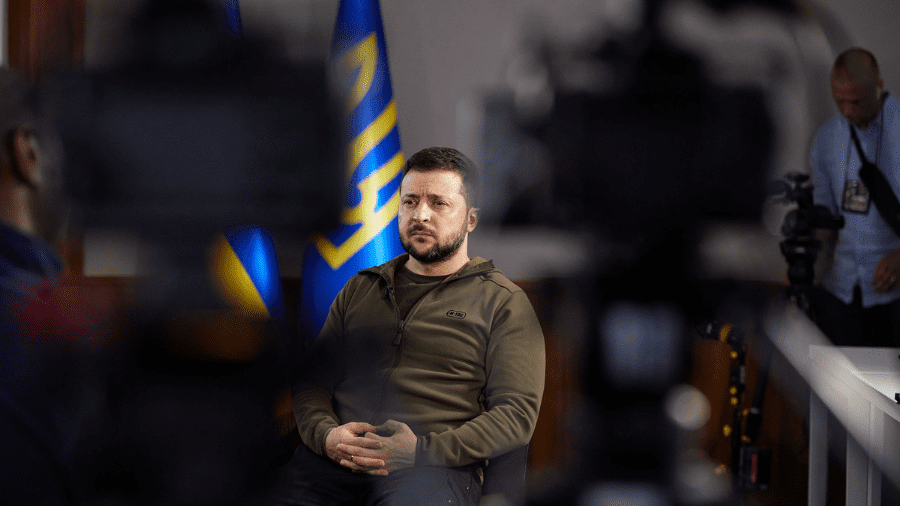By Matthew Bondy, May 31, 2023
For several days now, anti-Kremlin Russian fighters aligned with Ukraine’s war of self-defence against Vladimir Putin have taken the fight to Belgorod, southern Russia, to begin the nation’s “liberation” from Putin’s dictatorial rule.
It represents the first time in the conflict that Ukrainian or Ukrainian-allied forces have openly conducted kinetic missions within the Russian Federation.
What does it mean?
To those who support Ukraine in its goal of self-defence and self determination, this comes as welcome news.
The efforts of the some 4,000-man strong battlefield units who “are beginning to fight for a new Russia” are beneficial to Ukraine’s war effort. The Russian Federation is having to divert military energy and resources away from occupied Ukraine to address the insurgents. In the anti-kremlin fighters’ highest hopes, they could help spur the collapse of the vile Putin regime. The fighters’ efforts could shake ordinary Russians’ tolerance for Putin’s rule if he can no longer guarantee the homeland’s safety.
Ukraine’s victory and liberal regime change in Russia are both excellent objectives. But to win the war, Ukraine has to keep winning the battles – and that’s where alliance with unofficial international fighters could become a liability if the Ukrainian military and government are not careful.
This is chiefly because the defining feature of the United States’ and allied support for Ukraine’s war effort has been caution.
For more than a year, western allies have been providing their Ukrainian partners only the weapon systems and material support they need to not lose the war. For example, it took months of handwringing in 2022 by western governments to deliver main battle tanks for Ukraine’s self-defence.
And more recently, US President Joseph R. Biden finally acquiesced to Ukraine’s persistent pleading for F16s, a move my colleague Laryssa Waler and I called for months ago as part of a proposed “safe sky strategy” for Ukraine.
The pattern of western decision makers slowly providing progressively more advanced and offensive weapons systems – be they HIMARS, main battle tanks, or now F-16 training and hardware – is governed by one central principle: managing the risk of escalation.
As Politico has reported, the Biden administration has been frank that “the incremental approach is part of a calculated strategy to get Ukraine the capability it needs quickly on the battlefield, and to prevent escalation.”
As welcome as Ukraine’s anti-Kremlin Russian co-belligerents are to the overall ability of Ukraine to weaken Russian forces – and even open the door to clandestine operations within Russia that Ukraine wouldn’t dare conduct by themselves for fear of western reprisal – Ukraine must tread carefully to maintain western confidence that it controls the strategic environment, and therefore the risk of escalation.
There is already mounting evidence that high-end American hardware is in fact being used by these anti-Kremlin paramilitary groups, which is opening the door to Russian allegations of US support for domestic terrorism.
Still, while this paramilitary activity remains in its infancy, Ukraine can take clear steps to harness its power while managing the risks of both real escalation and of western fears arising from the potential for escalation.
First, Ukraine needs to make it clear in word and deed that while they are sympathetic to anti-Kremlin Russian fighters, they are not providing allied information or military assets to the group. The evidence that American military vehicles have found their way into paramilitary hands is a problem and it needs to be sorted quickly to prevent the Biden administration from over-reacting to the strategic risk that these freelancers represent.
If unmarked material makes its way from Ukrainian forces to its anti-Kremlin co-belligerents, then that’s well and good. But those goods cannot trace back to allied ministries of defence.
Second, Ukraine needs to make it equally clear that for reasons both of battle field command and control and to satisfy the principles of international law, all foreign fighters seeking to aid its campaign of self-defence should join the International Battalion.
Using France’s Foreign Legion as precedent, Ukraine’s International Battalion is a military organisation where foreign fighters can join the war effort under the authority of Ukraine’s official armed forces, placing all men and material assigned to the Battalion under legitimate Ukrainian command and control.
While Ukraine will not ultimately control the decision of the individual fighters to join the International Battalion rather than continue to freelance without official Ukrainian oversight, straining to make the invitation in a very public way will help Ukraine stay on the side of western diplomatic sensibilities and reduce Ukraine’s political liability for the groups’ manoeuvres against Russia.
These steps are necessary to help Ukraine navigate the turbulent politics of war-time coalitions, maintain and restore western confidence in Ukraine’s ability to control the strategic environment, and emphasise Ukraine’s ongoing commitment to the principles of international law.
Failing that, the activities of the so-called Free Russian Legion and Russian Volunteer Corps could become more trouble than they’re worth.
While both President Zelensky and the anti-Kremlin Russian fighters share antipathy to Vladimir Putin, their strategic alignments end there. Ukraine seeks its own self-determination and liberation from foreign invasion. These paramilitary fighters seek the overthrow of their own – that is, Russian – government.
The anti-Kremlin combatants certainly have a righteous cause, but first and foremost Ukraine must protect the viability of its own war effort.
Matthew Bondy, a Senior Fellow at the Macdonald-Laurier Institute and a former Army reservist, writes independently on public policy and national security.






